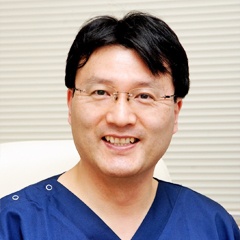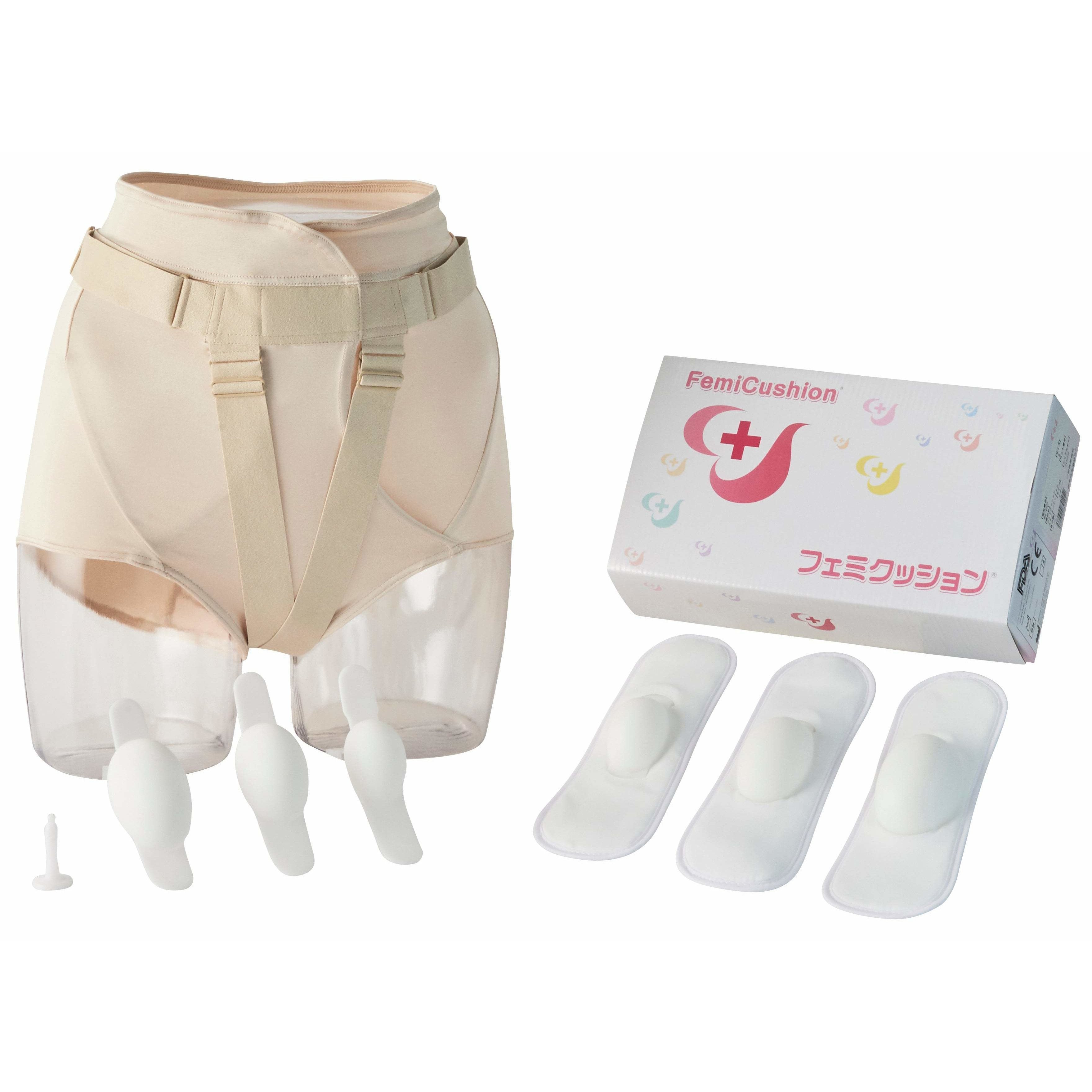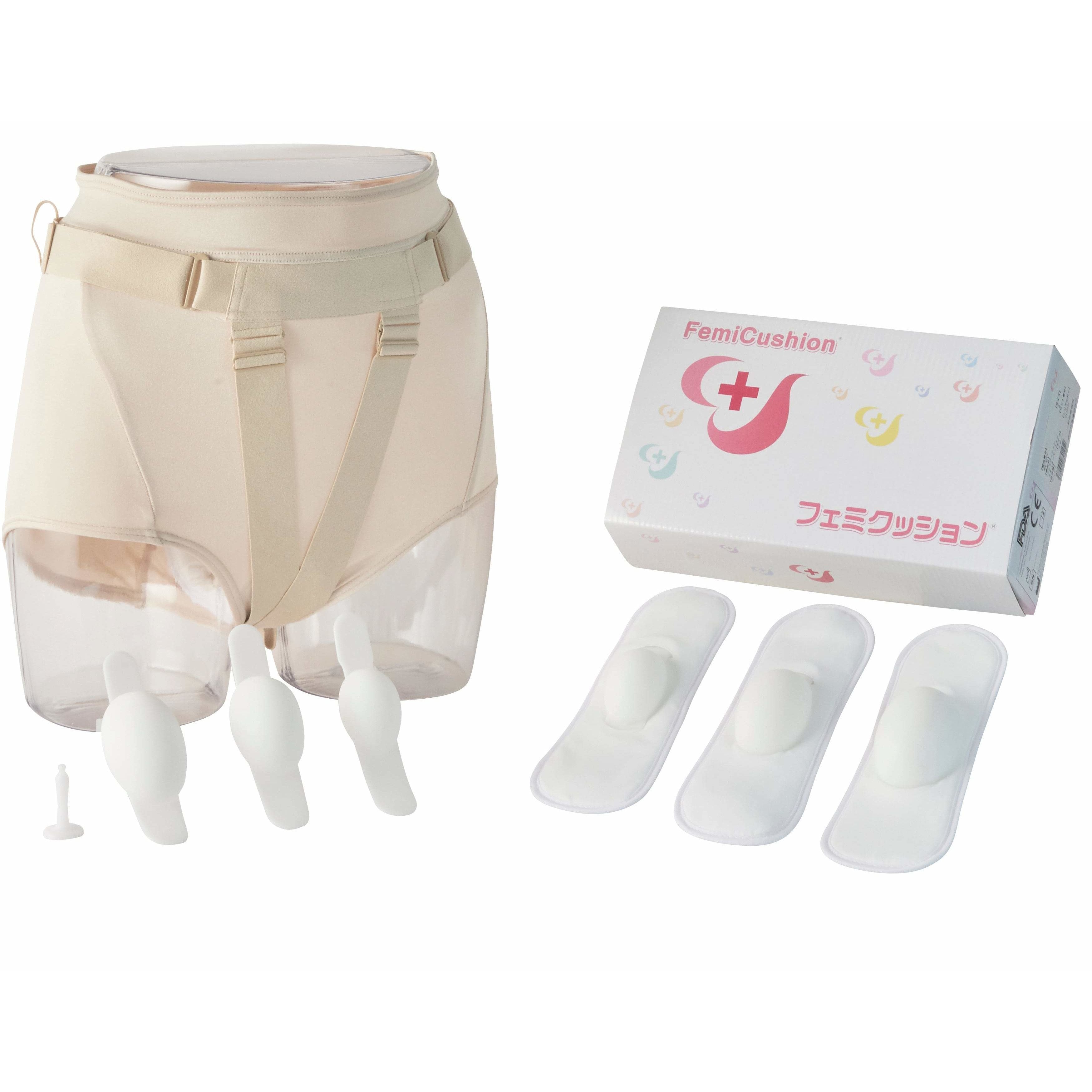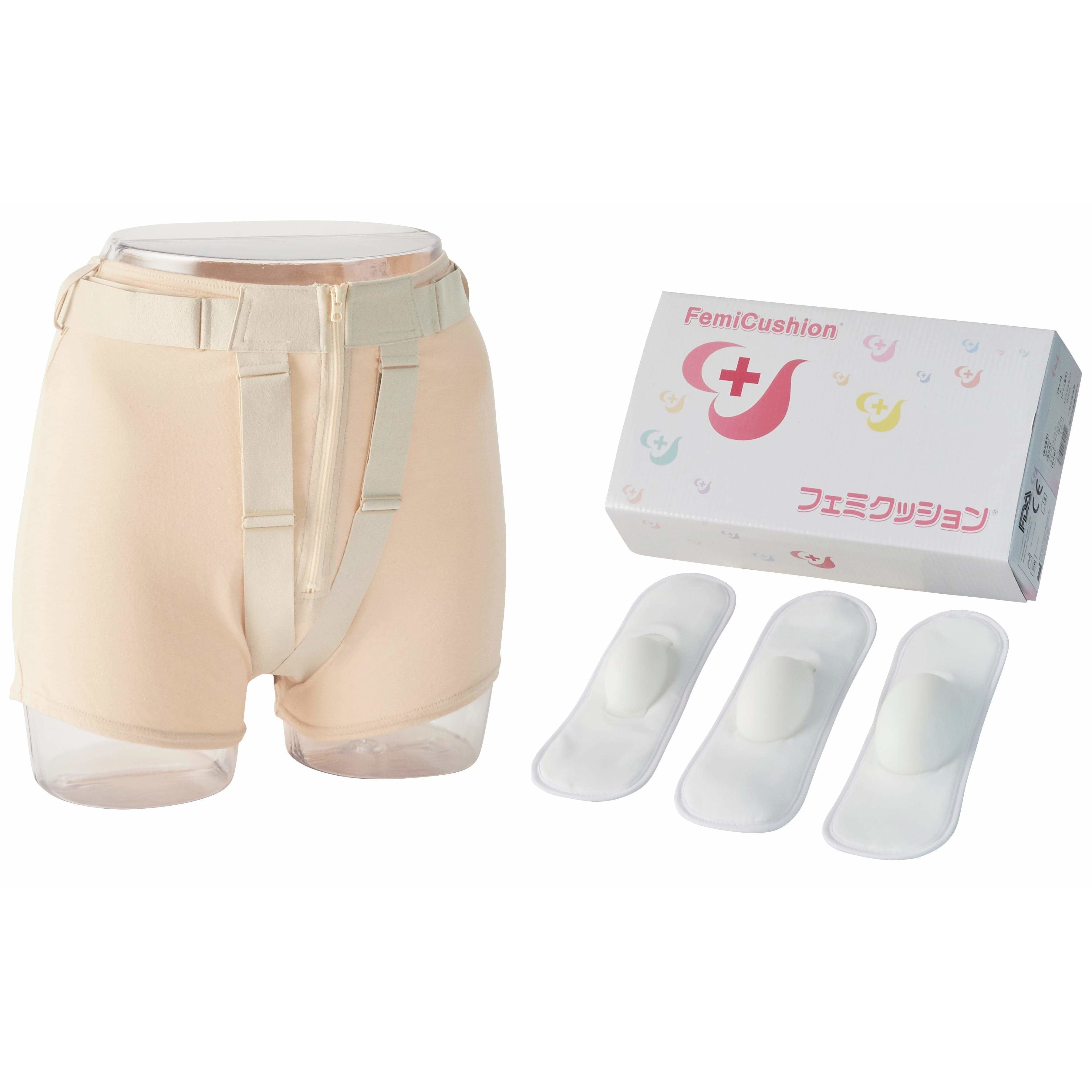Pessaries for Pelvic Organ Prolapse
Table of Contents
Being diagnosed with pelvic organ prolapse, you have probably heard of pessaries. Either your doctor mentioned them to you or you did some research on the web. Let us take a look at pessaries and examine whether they are a good treatment method.
What is a pessary?

A pessary is a prosthetic medical device that is inserted into the vagina in order to prevent prolapsed organs from sinking down further. As the prolapse worsens, you may experience painful symptoms like abdominal discomfort and urinary incontinence.
A common pessary prescribed for pelvic organ prolapse is the ring pessary, which is shaped like a donut. A pessary device is a relatively simple solution compared to surgical treatments, but since it is placed inside of the body, it can lead to infections and other problems.
Using a Pessary for Prolapse
Pessaries come in many different shapes and sizes, and need to be individually fitted by a doctor. The medical device is inserted into the vagina, and the correct pessary for each patient is found through trial and error. The patient needs to find one that fits comfortably in the correct position inside the body and treats the symptoms of prolapse. Many women have physical conditions that make a pessary difficult to insert or be fitted; For example, some women who experience prolapse after a hysterectomy have a hard time keeping the pessary in place.
Pessaries need to be removed, maintained, and cleaned regularly. Vaginal washing and pessary replacement are usually required at the hospital every 2 or 3 months.
Along with the pessary, it is likely your doctor will prescribe estrogen supplements as well as a lubricant to lessen discomfort, prevent urinary tract infections (UTIs), and help prevent ulcerations (internal sores).
Although pessaries are a common device for treating pelvic organ prolapse, there have been studies stating that using a pessary for prolapse as a permanent solution is not recommended.
Pros of Using Pessaries
- Simple treatment option
- Can be used as a treatment when surgery is not an option
- Cheaper and less intensive treatment option in comparison to surgery
- There are numerous types of pessaries with different purposes
Cons of Using Pessaries
- Discomfort and itching
- Periodic replacement and vaginal washing is required
- Risk of infection
- Vaginal bleeding
- Excessive discharge
- Unpleasant odor
- Hinders sexual intercourse
- Varying success rates
- Pessary may fall out
- Not suitable for all women
Pessary Alternative
Women who experience difficulty and discomfort with pessary devices can turn to FemiCushion as an effective alternative. FemiCushion provides safe and effective prolapse relief for women who are unable to use pessaries or wish to avoid them.

Unlike pessaries, nothing goes inside the body. This means there's no risk of infections, bleeding, excessive discharge, etc.
Instead, FemiCushion uses a soft and flexible silicone cushion to gently hold prolapsed organs inside the body, preventing them from bulging from the vagina. With use over time, prolapse symptoms are greatly reduced, allowing women to return to a normal and active lifestyle. Comfortable and easy to use, FemiCushion is suitable for all women with pelvic organ prolapse. It does not need to be prescribed by a doctor and you have total control.
From Pessaries to FemiCushion: Customer Testimonials
"After being diagnosed with Pelvic Organ Prolapse, I was told that the only option was surgery. The ring pessary did not fit me well, and I was troubled by the pain and discomfort; but after using FemiCushion, I feel like there is less prolapse than before. It was most uncomfortable in particular when I would take a bath, but now it barely prolapses out, saving me a great deal of trouble. Moreover, unlike the ring pessary, it doesn't need to be inserted (into the vagina), making it very easy to use."
"I have been using the ring pessary for some years now, but I was troubled by its discomfort every day. However, thanks to FemiCushion, I was able to stop using the ring pessary in September and will undergo surgery at the end of November. FemiCushion fits very nicely, and I feel at ease when wearing it throughout the day, so I can now wait comfortably until I have my surgery. Thank you."
"Four or five years ago, I began to need to use the bathroom more frequently than before. I felt that organs were starting to prolapse, so I went to a gynecologist to have it looked at. I began to use the ring pessary, but it did not improve much and I started having a discharge that was very uncomfortable. When I researched online, I realized that there are many other women who have the same symptoms that I have. Surgery is said to cure it nearly completely, but I was still worried. Besides, I was told that I would have to wait for a year to undergo surgery. I began using FemiCushion after finding out about it online. Six months have passed, and I have made good progress with it. I used to have to sit on a chair in the kitchen because it was so painful, but now I do not need a chair anymore. I even cancelled my appointment for surgery. I think I will be able to enjoy the rest of my years by using FemiCushion. This product is amazing."
Disclaimer
The information on this site is not intended or implied to be a substitute for professional medical advice or diagnosis. All content, including text, graphics, images, and information, contained on or available through this website is for informational purposes only.
Supervising Doctor of This Article

Koichi Nagao, MD PhD
Professor, Department of Urology, Toho University Faculty of Medicine
Director of Urinary tract reconstruction center, Toho University Omori Medical Center
Director of Reproduction Center, Toho University Omori Medical Center
Professor Nagao specializes in plastic surgery in the field of reproductive medicine. He completed eight years of plastic surgery training at Showa University before majoring in urology at Toho University. With his meticulous surgical techniques and careful examinations that combines urology and plastic surgery, Professor Nagao became a Board Certified Specialist with multiple associations including the Japanese Urological Association, the Japan Society for Reproductive Medicine, and the Japanese Society for Sexual Medicine.
The suggested Products

FemiCushion EasyOpen Deluxe Kit
$299.99

FemiCushion Standard Deluxe Kit
$299.99

FemiCushion Lite Kit
$249.99




